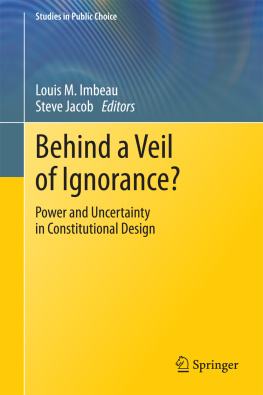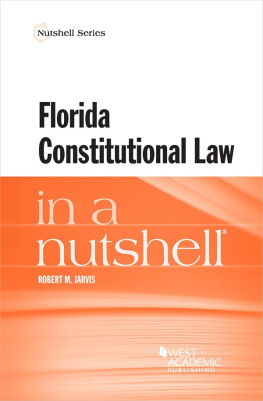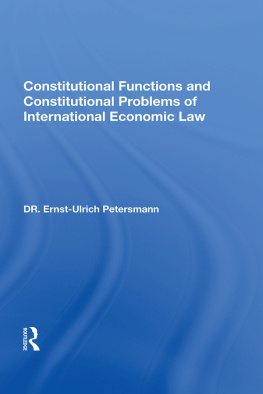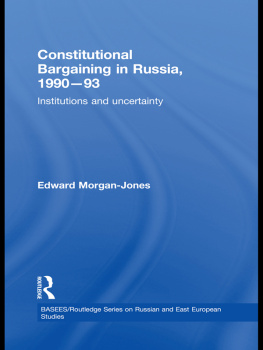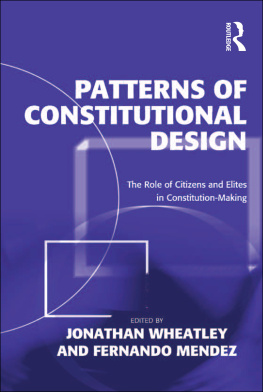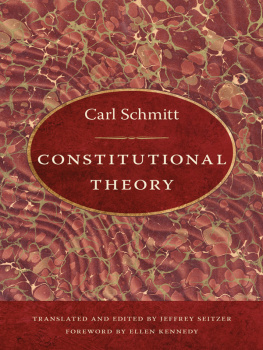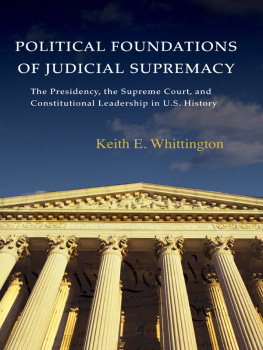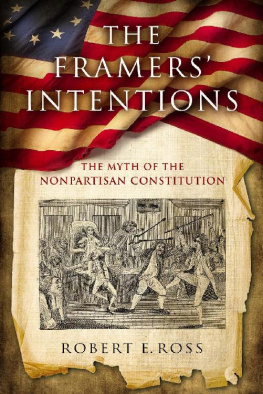1. Introduction
This book addresses the issue of the impact of uncertainty in constitutional design. To what extent do constitution drafters and adopters make their decisions behind a veil of ignorance? More fundamentally, can we infer from constitutional texts the degree of uncertainty faced by constitution drafters and adopters?
A constitution is a social contract defining a set of rules by which the governed agree to be governed. As such a constitution ascribes power resources to governors while restraining the way they are expected to use them. But a constitution is also a discourse by the drafters and adopters about what let them to make their choices. Thus, behind the formal content of a constitution is hidden an informal statement about the very motivations of its creators. Looking at a constitution from each of these two viewpoints opens two different windows for uncovering the motivations that drove its drafters in the constitution-making process. The social-contract perspective tells us which institutions drafters and adopters agreed to put in place in order to reach their objectives. The discourse perspective helps reveal what these objectives actually were, in a context where uncertainty about future conditions was very high. This book adopts the second perspective. It looks at constitutions as discourses from which to infer the motivations of constitution drafters and adopters in the face of uncertainty.
The idea that constitutional choices are made under uncertainty and that this uncertainty determines the characteristics of such choices was first presented by James Buchanan and Gordon Tullock in their seminal work, The Calculus of Consent . They wrote:
Recall that we try only to analyse the calculus of the utility-maximizing individual who is confronted with the constitutional problem. Essential to the analysis is the presumption that the individual is uncertain as to what his own precise role will be in any one of the whole chain of later collective choices that will actually have to be made. For this reason he is considered not to have a particular and distinguishable interest separate and apart from his fellows. This is not to suggest that he will act contrary to his own interest; but the individual will not find it advantageous to vote for rules that may promote sectional, class, or group interests because, by presupposition, he is unable to predict the role that he will be playing in the actual collective decision-making process at any particular time in the future. He cannot predict with any degree of certainty whether he is more likely to be in a winning or a losing coalition on any specific issue. Therefore he will assume that occasionally he will be in one group and occasionally in the other. His own self-interest will lead him to choose rules that will maximize the utility of an individual in a series of collective decisions with his own preferences on the separate issues being more or less randomly distributed (Buchanan and Tullock : 78).
Buchanan and Tullocks perspective was positive as they wanted to describe how constitutional decisions were actually made. Following their lead, John Rawls (
Constitutional political economy distinguishes between constitutional choice and in-period choice, or equivalently between choice among constraints and choice under constraints. The first refers to the choice of rules and the second to choice within rules (Brennan and Hamlin : 120127). Brennan and Hamlin argue that these two types of choice have important characteristics that differentiate themmotivational, informational, social-capital, and public-good characteristics. We focus here on motivational characteristics, i.e., on the degree decision-makers choose in their own private interest or in the general interest when making choices. In constitutional choice, rational decision-makers attend to the interest of the many. Because they do not know what their future position in society will be, their individual interests fade into the background and are replaced by the general interest of all agents (Ibid.: 120). Indeed,
the uncertainty introduced in any choice among rules or institutions serves the salutary function of making potential agreement more rather than less likely. Faced with genuine uncertainty about how his position will be affected by the operation of a particular rule, the individual is led by his self-interest calculus to concentrate on choice options that eliminate or minimize the prospects for potentially disastrous results (Brennan and Buchanan : 30).
However, in-period choices are devoid of this type of ignorance as they are to last for a shorter period of time and as they are easier to change once adopted. In this context, decision-makers choose in their own interest. Assuming that a given constitutional document ensues from the constitutional level of decision-making, we may expect that it is submitted to the same motivational characteristic. Therefore, its content should reflect the general interest more than particular interests.
Thus, we may ask questions such as: Which constitution belongs to the constitutional level of decision-making and which does not? What explains the variation? Adopting a cognitive perspective, we read national constitutions as an indication of the motivations that their drafters had at the time of adoption so as to assess whether this constitution reflects their own private interests more than the general interest (Imbeau ).
The book proceeds in two parts. The first part (Chaps. concludes.
In Chap. , Stefan Voigt compares two main veil notions regarding their value in explaining real world constitutional choices, John Rawls veil of ignorance and James Buchanans and Gordon Tullocks veil of uncertainty. Doing so, he surveys the political economics literature, looking at theoretical, experimental, and empirical approaches to evaluate how useful the notion of veil has been to explain the content of constitutions. He concludes that the central conjectures of veilonomics are unsatisfactory on theoretical grounds and refuted both experimentally and empirically.
Chapter by Christine Rothmayr Allison nicely complements Voigts chapter as it discusses the socio-legal literature. She shows how different explanatory approaches have developed over time, some close to Buchanans idea of the role of uncertainty in constitution-making, and others radically different. The chapter first provides a brief overview on the general findings about the global spread of rights protection and then reviews the theoretical approaches, first discussing the literature that operates most closely with the concept of uncertainty and then by contrasting these approaches with alternative explanations that more or less ignore this concept. This allows the author to compare and contrast competing explanations of the empowerment of courts through constitutional change, in order to situate the role of uncertainty within the larger socio-legal literature on how and why constitutions change.
Chapter by Louis Imbeau and Steve Jacob introduces the conceptual framework and the methodological apparatus developed in the Veil of Ignorance Project (VOIP) and presents some preliminary results. Imbeau and Jacob first expose the conceptual theoretical foundations of the project based on Buchanans interaction approach and on the notion of power. Then, they describe the content analysis method that was used to compare the discursive content of the constitutional texts analyzed in the following case studies. In the last section of their chapter, Imbeau and Jacob provide various measures of the opacity of the veil in 16 constitutions and test the validity of their results through a regression analysis.

